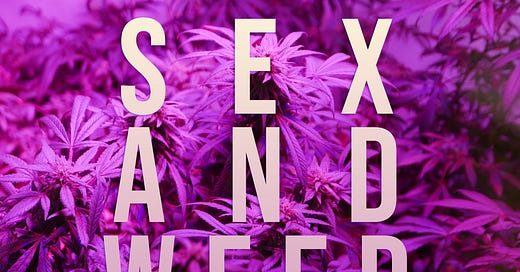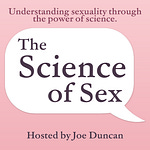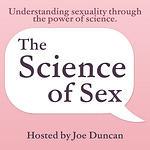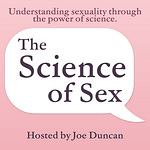I’ll never forget the first time I smoked marijuana.
It was about 3 PM after high school had let out. A few friends and I had taken to the park next door to the high school. It's where all the bad kids would hang out after school. We would smoke cigarettes, talk about our latest teenage crushes, and make fun of one another—usual kid stuff.
Strolling through the park, I came upon some old friends I hadn't seen in a while. They were standing in a circle. I nudged my way into the circle and asked what they were doing. I quickly found out they were smoking a blunt. I’d been friends with one of the guys for years, and he asked if I wanted to partake.
Feeling wild and never passing up the opportunity to try something new, I decided to give it a shot.
I took this earthy-smelling firestick up to my lips and inhaled as deeply as possible. They insisted: take more, feel free. So I did. I took several puffs before the world started to spin uncontrollably.
After a few minutes, it all became too much. I bolted, leaving the circle without even saying where I was going. I ran across the park to the bathroom, where I promptly dry-heaved for a few hours straight. When I left the bathroom, it was starting to get dark out, the very beginnings of sunset. I made my way home, and still, I felt sick. I was incredibly nauseous all day long.
Needless to say, my first encounter with this strange plant was anything but superb.
Skip forward into adulthood, and after working a plethora of odd jobs, I wound up working in politics. A few friends got me various political gigs, and it stuck. From environmental activism to legislation and working for Senators, Congresspersons, and even political parties, I weaved my way through the murky underbelly of professional politics.
First, some disclosures:
During my tenure, I would go on to be a part of several teams fighting for marijuana legalization on ten different occasions across the United States. I worked on Prop 64 in California, the law that legalized marijuana for recreational use. It had been approved for medicinal use in California since the mid-1990s. I worked the Florida push to legalize medical marijuana twice, the one that failed in 2014 and the one that succeeded later in 2017. I worked to pass marijuana laws in Denver, Colorado, Arizona, and a small town called Jurupa Valley, California, just outside Riverside.
I moved on to the push for the legalization of marijuana in Florida three times, working three different pushes to legalize it. Cannabis legalization wasn’t the only political cause I cared about, nor was it the majority of my work, but I took every opportunity I could to legalize it.
I also worked as a volunteer petitioning to legalize hallucinogenic psilocybin mushrooms in California, but that’s a story for another day.
I can’t tell you how many countless times I would be engaging voters on marijuana legalization issues, and they’d stop and invite me to take a break and smoke with them. The trouble is, I don’t smoke marijuana. Not after that first experience.
Nonetheless, I’ve always felt it’s my duty to legalize it for the good of those who do smoke it simply because it’s the right thing to do.
I list my marijuana resume, so you understand my positions on marijuana aren’t whimsical fancies. They are convictions forged in blood, sweat, and labor, working on the front lines of politics, engaging voters, and dealing with the who’s who of the political underworld.
Because of all this, I occupy a unique space to talk about marijuana honestly and without bias. I don’t smoke it but I’m also an activist who’s fought strongly for its legalization all over the United States.
Marijuana’s History
When it comes to sex, the science is mixed on how marijuana impacts us. It makes sense. There are as many conflicting scientific findings as there are strains of marijuana available to users.
Marijuana has reported therapeutic effects, but also some health risks which are not clearly defined.
Marijuana has been used since antiquity and has been assumed to possess immense potential as a medicine. Since ancient times, humans have known about its potential to stop seizures, helping epileptics; it's been used for pain relief, depression, and much more. And yet, during all of that time, it was barely researched.
Even during the chemistry boom of the late 19th-century, people largely ignored marijuana while investigating new compounds for medicine, poison, you name it.
Until the 1960s. Once peace, love, and the Hippie movement brought new attention to weed, everything changed. In the early 1960s, scientists knew next to nothing about this dreamy little plant.
A young chemist in his 30s at Israel's Weizmann Institute of Science, Raphael Mechoulam, saw a curious gap in knowledge when he went looking for natural products. The Smithsonian tells Mechoulam’s story in detail in their article The Scientific History of Cannabinoids.
It was only by a stroke of pure luck that Mechoulam was able to study it and discover much of what we know about the plant today.
It was illegal at the time. And it just so happened that the administrative head of his research institute knew a local cop pretty well and put the two in touch. They got together and Mechoulam pitched the police officer his idea—he wanted to study pot. The officer heard him out and agreed, allowing him access to the marijuana the police had confiscated from smugglers. He was given 5 whole kilos to explore.
With that, he was able to determine what THC and CBD were.
The discovery of the chemical composition of cannabis by Mechoulam and his colleagues ignited research on the plant, resulting in over 140 active compounds being identified. Additionally, they uncovered the fact that humans have their own natural forms of similar chemicals, known as endocannabinoids, which influence our mood and personality. Subsequent advances in science have led to the creation of hundreds of synthetic cannabinoids, which are far more potent than those found in nature.
What is Weed?
Let’s talk about what marijuana actually is…
Marijuana, hash, hemp, cannabis, THC, and CBD are all terms related to cannabis, but they all refer to different aspects of the plant. Here is an explanation of each:
Cannabis – Cannabis is the umbrella term for the genus of flower-bearing plants that includes both marijuana and hemp. Although hemp and marijuana are both varieties of cannabis, they are quite different in terms of their level of THC and other cannabinoids.
Marijuana – Marijuana is the dried leaves, flowers, stems and seeds of the cannabis plant. It contains THC, the chemical responsible for the psychoactive effects of marijuana.
Hash – Hash is a concentrated cannabis product that is made by compressing the plant’s resin glands into a ball. It usually has high levels of THC but can also contain other cannabinoids like CBD.
THC – THC (delta-9-tetrahydrocannabinol) is the chemical compound in marijuana that is responsible for the plant’s psychoactive effects. THC is generally found in higher concentrations in marijuana than in hemp.
CBD – CBD (Cannabidiol) is the second most abundant cannabinoid, and it is largely responsible for the therapeutic effects of cannabis. CBD is found in higher concentrations in hemp than in marijuana.
Hemp – Hemp is a variety of the cannabis plant that contains very low levels of THC. Hemp is used to make paper, textiles, rope, food, and other industrial products. Hemp is mostly high in CBD, not THC.
Cannabis has been used for centuries for a variety of reasons, from suppressing anxiety or pain to spurring appetite and preventing seizures. Epidiolex, a cannabis-derived medicine consisting of purified CBD, was approved in 2018 for the treatment of seizures in some patients. Some people, like those with schizophrenia, OCD, Parkinson's, and cancer, use cannabis to get rid of their symptoms.
But what about those who use it for sex?
Sex on Weed
As I said before, the research is mixed. But the biggest theme cutting across swaths of research seems to be this: for women, marijuana has a positive effect on sexual pleasure, making orgasms more intense and satisfying. However, many men find it more difficult to reach an erection or have difficulty maintaining it.
First, the good news…
A 2019 study published in the Journal of Sexual Medicine explored how cannabis alters the human sexual experience. They issued a survey to both men and women. 216 people reported using marijuana with sex.
Almost half of the people who responded to the survey said they used cannabis to change their sexual experience. Most said that sex was better, either in some ways, or in all ways, when using cannabis. Most also said that cannabis increased their desire for sex, satisfaction, sensitivity to touch, and intensity of orgasm. Additionally, many reported being able to relax more and be better able to focus while using cannabis. 28 people reported having difficulty reaching orgasm without cannabis use. About half of the people who had trouble reaching orgasm while not using cannabis said that it was easier to reach orgasm while using cannabis, but only 10 said that sex was better.
Researchers concluded:
Many participants in our study found that cannabis helped them relax, heightened their sensitivity to touch, and increased intensity of feelings, thus enhancing their sexual experience, while others found that cannabis interfered by making them sleepy and less focused or had no effect on their sexual experience.
The same year, another study was performed and published in Sexual Medicine.
A survey was issued over the course of a year in a medical practice specializing in gynecology and obstetrics. Patients were asked to fill out a questionnaire after their visit and the results were kept anonymous. The main focus was how satisfaction in sexual experiences (like drive, orgasm, lubrication, and pain during sex) was affected by marijuana use.
Out of 373 participants, 127 said they had used marijuana for their sexual activities. Most reported an increase in sex drive, an improvement in orgasm, and a decrease in pain, but there wasn't a change in lubrication. After accounting for race, women who did use marijuana before sex had 2.13 times higher odds of reporting satisfactory orgasms than those who hadn't. Additionally, women who frequently used marijuana (regardless of use before sex or not) had 2.10 times higher odds of reporting satisfactory orgasms than those who did not.
Researchers concluded:
Marijuana appears to improve satisfaction with orgasm. A better understanding of the role of the endocannabinoid system in women is important, because there is a paucity of literature, and it could help lead to development of treatments for female sexual dysfunction.
Yet, for men, research has shown quite a bit of trouble.
In 2011, a team of researchers looked into marijuana’s impacts on men’s sexual health. They looked at existing studies, but found that the results are contradictory and confusing. Recent animal and laboratory studies suggest that cannabis may have some negative effects on erection and other sexual functions. They concluded that more research is needed to find out how it really affects men's sexual health.
A 2019 study further investigated the relationship between marijuana use and erection problems.
The review looked at the prevalence of one of those risks, erectile dysfunction, in cannabis users compared to non-users. The results showed that cannabis users have almost four times the chances of having erectile dysfunction than non-users. However, more research needs to be done to see if there is a relationship between cannabis use and erectile dysfunction.
Aside from physical effects, marijuana also appears to have a psychological impact on individuals’ sexual experiences. People who use marijuana before sex tend to report increased feelings of relaxation and pleasure, as well as improved sexual confidence. This can lead to better sex, but it can also result in decreased inhibition and risky sexual behaviors.
But even this research isn’t very concrete.
A 2018 study looked at whether marijuana increased sexual risk and whether people's expectations about the effects of marijuana on their sexual behavior had an influence. To do this, 126 heterosexual marijuana users were given marijuana or a placebo and then asked to imagine themselves in sexual situations and estimate the likelihood they would use condoms. The results showed that while marijuana itself did not increase sexual risk, expectations about marijuana and sex did influence decision-making. Men given the placebo expected increased sexual risk with a new partner and women expected increased sexual risk with a steady partner.
So while the marijuana itself didn’t increase sexual riskiness, the thought of having sex while high made people more likely to want to engage in risky sex.
I’ve got to say, the bulk of the research has been conducted with minuscule sample sizes. There are also a ton of selection biases. But the issues we see in men are likely not mere noise, static in the data that will fizzle out as more research is done. Such massive increases in erectile dysfunction are suspect and worth further investigating.
The scientific research on the effects of marijuana on sex is inconclusive and hopefully much more research will be done. In the meanwhile, each person knows how they’ll react to marijuana and should use their better judgment with these products becoming more widespread and legal.
Me? I know I’ll be the last guy on earth to touch the stuff.
But I’ll still continue to fight for everyone else’s right to enjoy it.














Share this post